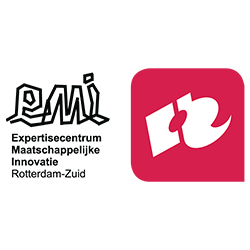Op basis waarvan worden in je organisatie HR-beslissingen genomen? Op basis van eigen cijfers of van best practices bij andere organisaties? Op basis van gefundeerde argumenten, of eenvoudigweg door hoger management, waarbij je je eigen organisatie-expertise aan de kant zet? Beslisculturen in organisaties kunnen heel fact free of meer evidence-based zijn. In een fact-freecultuur heeft HR Analytics als zevende zintuig geen schijn van kans. Cijfers kunnen als moeilijkdoenerij worden gezien of zelfs een bedreiging vormen voor stakeholders die cijfers enkel beschouwen als een middel om af te rekenen met het bestaande beleid. Of cijfers zijn een ritueel geworden: niemand vraagt zich meer af wat ze eigenlijk betekenen. In een evidence-basedcultuur worden belangrijke beslismomenten serieus genomen. Op die momenten is er de kans om de kwaliteit van de beslissing te verrijken met analytische inzichten – naast informatie die andere zintuigen kunnen aanleveren. HR Analytics kan hier haar meerwaarde doen gelden. Maar de HR Analyticspraktijk is weerbarstig. Zelfs als het belang en de uitvoering van HR Analytics goed ingebed zijn, betekent dat niet automatisch dat analytische inzichten de HR-beleidsvoering altijd bereiken en invloed uitoefenen.
DOCUMENT

De Nederlandse arbeidsmarkt is voor veel jonge vrouwen geen veilige of stimulerende omgeving. Dat gevoel ontstaat al tijdens de opleiding in het hoger onderwijs, maar ook vaak tijdens het werk zelf. Deze factsheet bevat informatie voor HR-professionals.
DOCUMENT

In deze bijdrage wordt een analyse gemaakt van de rol van HRM in organisaties in de Nederlandse context. Dit artikel is gebaseerd op achttien casestudies, die zijn uitgevoerddoor studenten in de periode 2008-2011. De studenten zijn afgestudeerd bij het lectoraat HRM en Persoonlijk Ondernemerschap van Hogeschool Inholland.
DOCUMENT

Diverse partijen, zowel marktpartijen als kennisinstellingen, gaan in 2020 samenwerken in een pilot om te toetsen in hoeverre zij de plant kardoen (familie van de artisjok distel) in haar volle potentieel kunnen gebruiken voor diverse commerciële doeleinden, zoals bloemen, voedsel, composiet en een lamp. Er wordt in deze pilot onderzoek gedaan naar: - Gebruik van reststromen als bodemverbeteraar - Teelt van kardoen - Verwerking van kardoen
The focus of this project is on improving the resilience of hospitality Small and Medium Enterprises (SMEs) by enabling them to take advantage of digitalization tools and data analytics in particular. Hospitality SMEs play an important role in their local community but are vulnerable to shifts in demand. Due to a lack of resources (time, finance, and sometimes knowledge), they do not have sufficient access to data analytics tools that are typically available to larger organizations. The purpose of this project is therefore to develop a prototype infrastructure or ecosystem showcasing how Dutch hospitality SMEs can develop their data analytic capability in such a way that they increase their resilience to shifts in demand. The one year exploration period will be used to assess the feasibility of such an infrastructure and will address technological aspects (e.g. kind of technological platform), process aspects (e.g. prerequisites for collaboration such as confidentiality and safety of data), knowledge aspects (e.g. what knowledge of data analytics do SMEs need and through what medium), and organizational aspects (what kind of cooperation form is necessary and how should it be financed).
The focus of this project is on improving the resilience of hospitality Small and Medium Enterprises (SMEs) by enabling them to take advantage of digitalization tools and data analytics in particular. Hospitality SMEs play an important role in their local community but are vulnerable to shifts in demand. Due to a lack of resources (time, finance, and sometimes knowledge), they do not have sufficient access to data analytics tools that are typically available to larger organizations. The purpose of this project is therefore to develop a prototype infrastructure or ecosystem showcasing how Dutch hospitality SMEs can develop their data analytic capability in such a way that they increase their resilience to shifts in demand. The one year exploration period will be used to assess the feasibility of such an infrastructure and will address technological aspects (e.g. kind of technological platform), process aspects (e.g. prerequisites for collaboration such as confidentiality and safety of data), knowledge aspects (e.g. what knowledge of data analytics do SMEs need and through what medium), and organizational aspects (what kind of cooperation form is necessary and how should it be financed).Societal issueIn the Netherlands, hospitality SMEs such as hotels play an important role in local communities, providing employment opportunities, supporting financially or otherwise local social activities and sports teams (Panteia, 2023). Nevertheless, due to their high fixed cost / low variable business model, hospitality SMEs are vulnerable to shifts in consumer demand (Kokkinou, Mitas, et al., 2023; Koninklijke Horeca Nederland, 2023). This risk could be partially mitigated by using data analytics, to gain visibility over demand, and make data-driven decisions regarding allocation of marketing resources, pricing, procurement, etc…. However, this requires investments in technology, processes, and training that are oftentimes (financially) inaccessible to these small SMEs.Benefit for societyThe proposed study touches upon several key enabling technologies First, key enabling technology participation and co-creation lies at the center of this proposal. The premise is that regional hospitality SMEs can achieve more by combining their knowledge and resources. The proposed project therefore aims to give diverse stakeholders the means and opportunity to collaborate, learn from each other, and work together on a prototype collaboration. The proposed study thereby also contributes to developing knowledge with and for entrepreneurs and to digitalization of the tourism and hospitality sector.Collaborative partnersHZ University of Applied Sciences, Hotel Hulst, Hotel/Restaurant de Belgische Loodsensociëteit, Hotel Zilt, DM Hotels, Hotel Charley's, Juyo Analytics, Impuls Zeeland.
Lectorate, part of NHL Stenden Hogeschool
Lectorate, part of NHL Stenden Hogeschool
Centre of Expertise, part of Hogeschool Rotterdam
